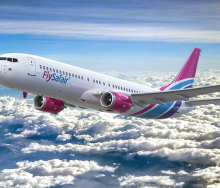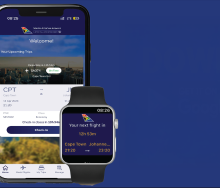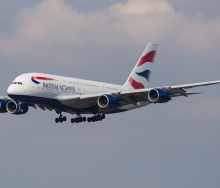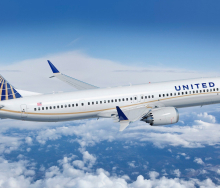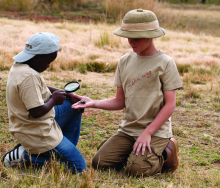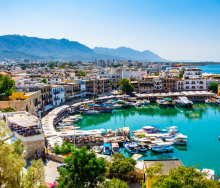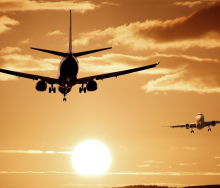Waterborne pollution at some of Durban’s most popular beaches continues to pose a health risk for beach users.
Negative publicity about the beaches is a big headache for the tourism industry of the entire coastal region of KZN, even those where beaches are unaffected, and the situation seems destined to continue until national and local government respond with an effective water services repairs and maintenance plan.
On July 3, the Institute for Water and Wastewater Technology (IWWT) at the Durban University of Technology conducted water quality tests at Durban’s popular beaches. In contradiction with data from the local municipality, the IWWT’s report found that 11 of the 14 beaches tested showed critical levels of E. coli and recommended these beaches should not be used for recreational purposes.
The E. coli count is measured per 100 ml; 0 -130 means ideal water quality, below 200 means acceptable water quality, any count above 200 is considered poor quality and any count above 400 is considered critical, and those beaches should not be used for recreational purposes.
The IWWT researchers found that the water quality of Umdloti Beach, Glenashley Beach, Virginia Beach, Umgeni River, Umgeni River Mouth, Laguna Beach, Country Club Beach, Bay of Plenty, Addington Beach and Ushaka beach were at critical levels, ie above 400.
"The high E. coli levels could be attributed to various factors, including sewage pump station discharges into rivers including the Umgeni River, and poor quality effluent discharged from wastewater treatment plants into rivers or stormwater discharges, for example,” Professor Faizal Bux, Director of the Institute told Travel News.
Gugu Sisilana, spokesperson for the eThekwini municipality, told Travel News that, of these beaches, Virginia Beach, Umgeni River and Umgeni River Mouth were designated non-swimming beaches due to water quality and Westbrook Beach had been closed for these reasons as well.
“The most recent water quality results for Laguna Beach, Country Club Beach, Bay of Plenty and Addington Beach reveal satisfactory results that are safe and permissible for bathing,” said Sisilana.
The municipality’s water tests on July 26 revealed levels lower than 200 for all these beaches, in stark contrast to the July 3 study from IWWT, which showed levels as high as 4 352 for Addington Beach.
This disparity is not uncommon, according to Bux. “As much as the water quality on the date of sampling was not within national guidelines, it can change daily depending on various environmental parameters.”
This problem appears mainly to affect central and northern Durban beaches.
Acting CEO of the South Coast Tourism and Investment Enterprise, Deborah Ludick, told Travel News that the coastline south of Durban, which was not tested in the IWWT study, was mostly safe for swimming.
“All South Coast beaches are regularly subjected to water quality testing, sampling and analysis. We are very happy to confirm, that other than Margate Beach, all the beaches along the KZN South Coast are open and safe for swimming.”
She added that the South Coast contained the highest number of Blue Flag beaches in the province. However, tourism all over the province has been affected by this problem.
Publicity scares tourists away
The publicity that the region has received over the health risks of swimming in the ocean has been “devastating” for tourism businesses, according to a report from SABC News dating back as far as 2022. Accommodation providers said the effect of pollution at some beaches was causing them to run at a loss.
GM of the Oyster Box Hotel, Roberto Rosa, agreed that hotels in areas where beaches were not affected had suffered because of media reports. Despite the acceptably clean waters in the Umhlanga area, the effect of media reports has been enough to scare away tourists.
“Unfortunately, the negative publicity attached to the water quality and state of the beaches in Umhlanga, eThekweni and the greater eThekweni region, has had an impact on all businesses and hotels in some way.” He added that the Oyster Box Hotel was not an exception.
“This has not only impacted the vital domestic tourist market, which has been our bread and butter throughout the year, but the news has now leaked internationally. There has been a devastating knock-on effect on the international client market, who used to extend their visit by a few days to include Durban or Umhlanga following a safari experience in northern KwaZulu Natal. Now they simply fly directly out of the province either back to their home country or down to the Western Cape.”
Rosa said the hotel relied on information from the eThekwini municipality to alert guests and advise them on whether or not they could swim in the ocean. The hotel also offers complimentary shuttle services to beaches that are deemed safe for swimming.
“We have had to use creative ways to ensure that our clients continue to feel spoilt and do not think that they are missing out by not being able to swim in the sea. We have had to offer lots of complimentary activities and food and beverage, which we have had to absorb,” Rosa added.
Lindiwe Sangweni-Siddo, COO of City Lodge Hotels said that City Lodge hotels advises guests on up-to-date beach closures if necessary.
“All our hotels give access to swimming pools, so guests can always enjoy a dip in the hotel pool instead,” said Sangweni-Siddo.
As a hotel chain with a prominent footprint in the KwaZulu-Natal area, the General Managers of City Lodge Hotels in Durban actively engage with the municipalities in Durban and Umhlanga about the state of the beaches. “There is ongoing collaboration between local businesses and the municipality,” said Sangweni-Siddo. This includes the use of a WhatsApp group to keep stakeholders informed of infrastructure issues and beach closures.
Bux said the problems in the area could only be fixed through sustainable infrastructure maintenance and an effective repair plan, but this would depend on local and national government. He said it would continue to be an issue until water service authorities respond effectively.

